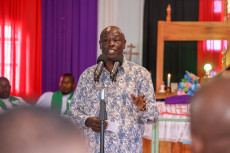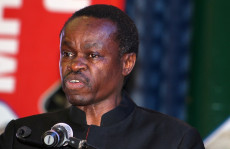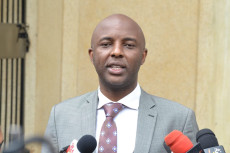Life is inherently unpredictable, offering no guarantees about tomorrow or the years to come. This uncertainty is shaped by various factors beyond our control, such as family background and socioeconomic status.
Social inequality often reveals significant disparities, where some individuals enjoy privileges while others face systemic barriers. For instance, some people go without food, while others have the luxury of multiple meals a day. Economic inequalities further illustrate this divide, with one person earning a monthly salary of two million shillings, while another struggles to get by on just two thousand.
The absence of balance in life is evident in the challenges faced by individuals with disabilities, who often encounter discrimination. Similarly, racism and stigmatization, such as the marginalization of people with albinism, highlight the societal biases that persist. Discrimination can also manifest based on physical appearance—whether one is tall, short, overweight, or thin—leading to derogatory nicknames and social exclusion.
This imbalance creates a significant gap, particularly in job opportunities. Some individuals may be overlooked for employment due to their financial constraints or their background, while others secure positions not through merit, but through nepotism or bribery. In Kenya, the phrase "niko na connection" (I have connections) often prevails, resulting in qualified candidates being sidelined for less deserving individuals.
Social dynamics further complicate these inequalities. The perception that iPhone users are wealthier than Android users fosters divisions, as does the status associated with the cars people drive. Those who own vehicles often receive more respect at social gatherings, while those without may experience exclusion. Even the food served at events can reflect these disparities, creating a hierarchy based on wealth and social standing.
Read More
Education is another area where life’s imbalances are apparent. The existence of elite schools for the wealthy contrasts sharply with the limited options available for less affluent families. Some parents can afford to send their children to prestigious universities, while others must settle for lower-cost institutions, not out of a lack of aspiration, but due to financial constraints. This creates a cycle where some families have the means to invest in their children’s futures, while others cannot.
Gender inequality also plays a role in these disparities, with opportunities sometimes favoring one gender over another. Educational access is often contingent on financial resources, leaving many unable to afford tuition for higher education. Health issues further complicate matters; individuals suffering from chronic illnesses may struggle to afford necessary treatments, such as insulin for diabetes or specialized diets.
Many individuals hesitate to reach out to their families for financial support, fearing the response will be discouraging. The refrain, "wacha tuone nikipata nitakutumia" (let’s see if I can find something to send you), often leaves students feeling isolated and without hope.
Although life presents countless imbalances, it is essential to embrace its unpredictability. Lasting balance remains elusive, and the complexities of life resist simplification. By acknowledging these disparities, we can foster a greater understanding of one another and work towards creating a more equitable society for all.






-1756739624-md.jpeg)





-1756739624-sm.jpeg)